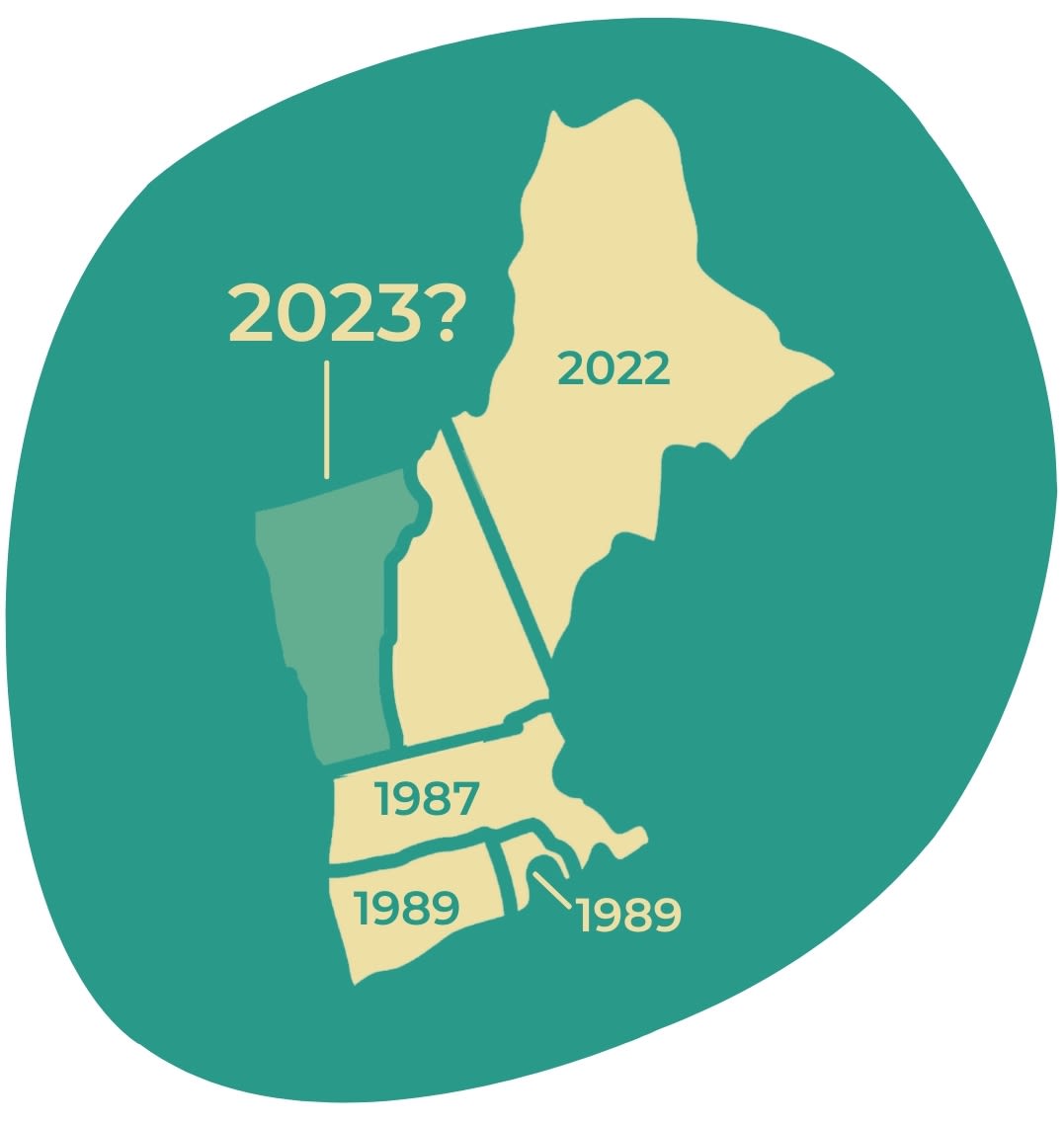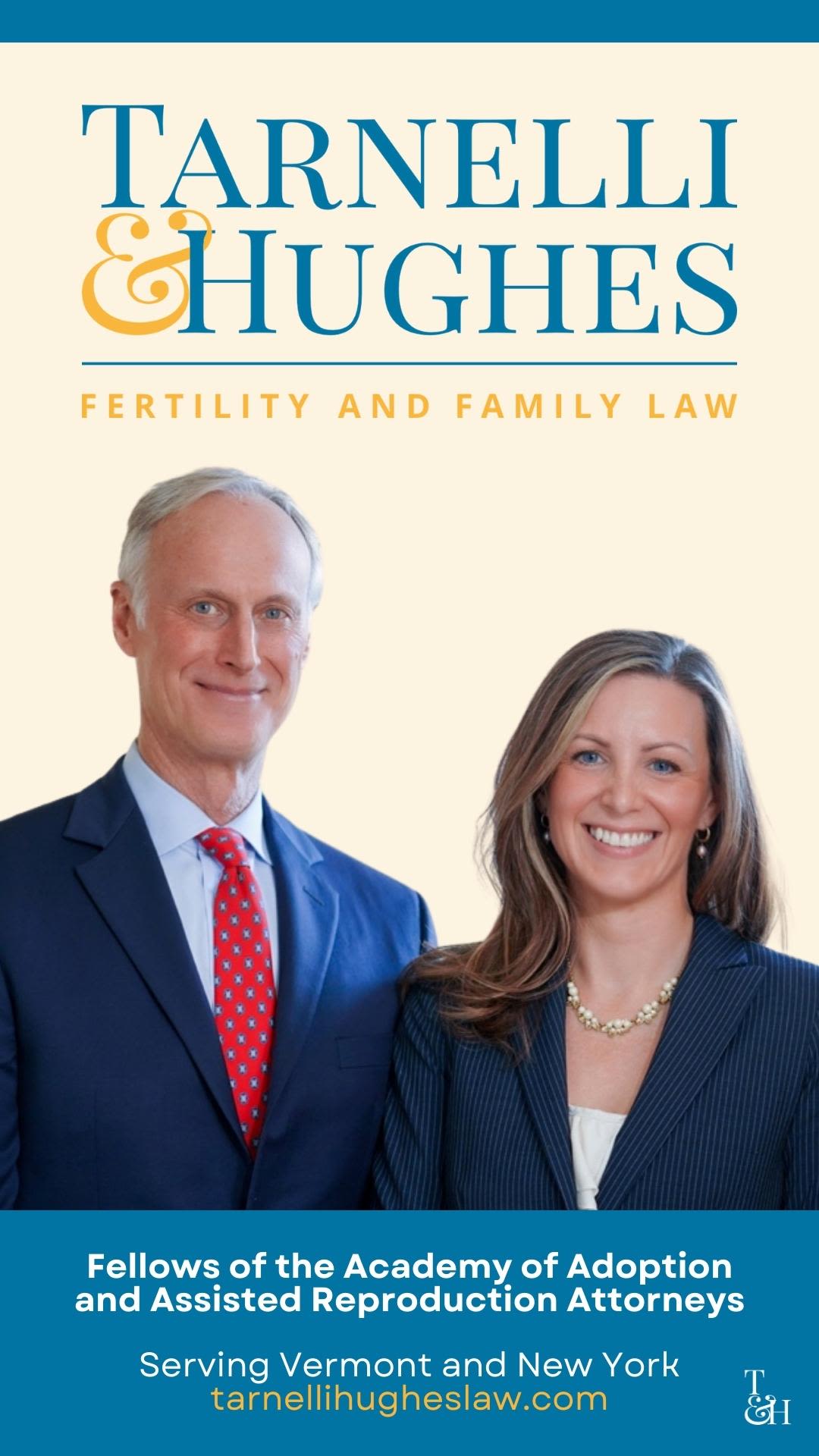Access to Fertility Care in New England

Advocacy has been part of the mission of Resolve New England (RNE) throughout our history, and it feels more important than ever right now.
Having recently completed strategic planning, RNE has affirmed that advancing and protecting fertility care is one of our key strategic goals. We won’t rest until all six New England states have fertility insurance laws, and until the coverage of those laws is as inclusive as possible. RNE wants to do all we can to remove any barriers to people receiving the fertility and reproductive care that they need.
This year RNE’s advocacy focus is Vermont because it is the last state in the region to pass a fertility insurance law (we do not use the word mandate, which can make it seem like universal coverage and unfortunately is not).
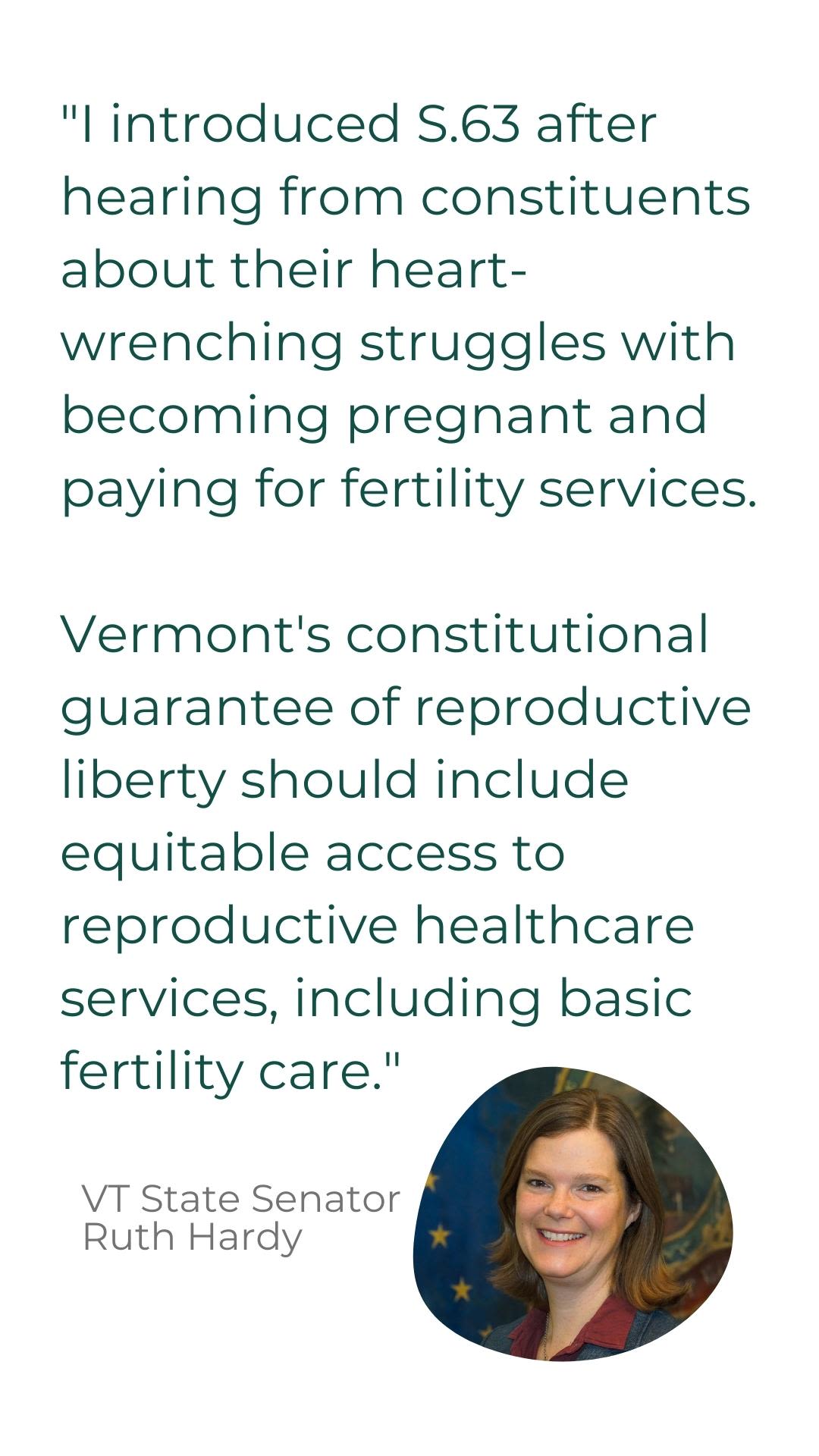
RNE will keep our community informed as this advocacy campaign proceeds, and anyone interested is also welcome to join our private Vermont Facebook group.


A proud member of the Fertility Access Connecticut (FACT) campaign, RNE is also actively supporting HB 6617, An Act Promoting Equity in Coverage for Fertility Health Care, which will update, clarify and expand what is covered in Connecticut.
In late February, RNE joined other FACT members in testifying before the Human Services committee in support of HB 6617, which addresses limitations of Connecticut’s existing law.
Currently, there is no coverage for fertility care, including fertility preservation, under HUSKY Health (the state’s Medicaid program). Also, typically LGBTQ+ and unpartnered people have limited or no coverage from private insurance, in part because the state has a heterosexist definition of infertility. Paying out of pocket for fertility treatment is impossible for many individuals and couples.
“Connecticut residents should have the ability to make choices regarding reproduction, fertility, and family-building that are best for themselves and their families,” explains Representative Jillian Gilchrest. “That includes being able to access and afford the medical care they need.”
Kim Forte, a lesbian parent to seven-year-old twins in Connecticut, told the committee about the extensive emotional and financial cost that she and her spouse bore to “prove” her infertility before her private insurance would cover the cost of IVF. Kim had to self-pay for 6 cycles of “intrauterine inseminations, something my doctors knew that given my age would likely not be successful.”
The impact was $15,000 in out-of-pocket costs, as well as the substantial toll of going through unnecessary months of medical procedures that would have been covered and/or not required at all if Kim had been in a heterosexual relationship.


We are proud and excited to see more inclusive fertility definitions being approved, starting with laws in Maine and Illinois.
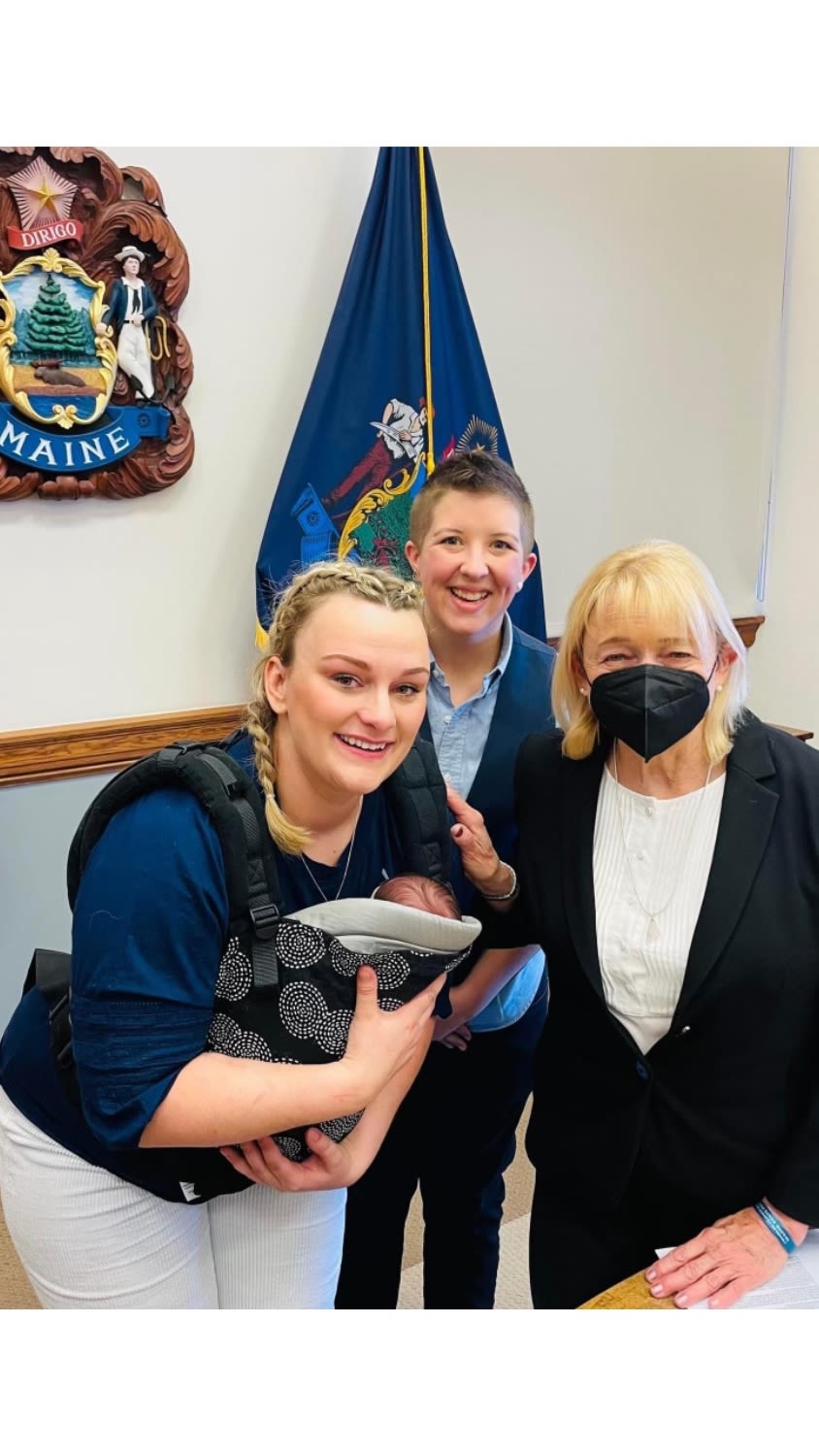
Maine Governor Janet Mills and advocates at the signing of LD. 1539 on May 2, 2022
Maine Governor Janet Mills and advocates at the signing of LD. 1539 on May 2, 2022
Conversations about this are also underway in other cities and states across the nation, including in Massachusetts. Hopefully, this will be a trend that continues, with New England leading the way!

Advocacy has been part of the mission of Resolve New England (RNE) throughout our history, and it feels more important than ever right now.
Having recently completed strategic planning, RNE has affirmed that advancing and protecting fertility care is one of our key strategic goals. We won’t rest until all six New England states have fertility insurance laws, and until the coverage of those laws is as inclusive as possible. RNE wants to do all we can to remove any barriers to people receiving the fertility and reproductive care that they need.
This year RNE’s advocacy focus is Vermont because it is the last state in the region to pass a fertility insurance law (we do not use the word mandate, which can make it seem like universal coverage and unfortunately is not).
A comprehensive fertility bill has been filed in both the House and Senate of the Vermont legislature this session. The lead sponsors are State Senator Ruth Hardy and State Representative Mari Cordes.

RNE will keep our community informed as this advocacy campaign proceeds, and anyone interested is also welcome to join our private Facebook group.
A proud member of the Fertility Access Connecticut (FACT) campaign, RNE is also actively supporting HB 6617, An Act Promoting Equity in Coverage for Fertility Health Care, which will update, clarify and expand what is covered in Connecticut.
In late February, RNE joined other FACT members in testifying before the Human Services committee in support of HB 6617, which addresses limitations of Connecticut’s existing law.
Currently, there is no coverage for fertility care, including fertility preservation, under HUSKY Health (the state’s Medicaid program). Also, typically LGBTQ+ and unpartnered people have limited or no coverage from private insurance, in part because the state has a heterosexist definition of infertility. Paying out of pocket for fertility treatment is impossible for many individuals and couples.
“Connecticut residents should have the ability to make choices regarding reproduction, fertility, and family-building that are best for themselves and their families,” explains Representative Jillian Gilchrest. “That includes being able to access and afford the medical care they need.”
Kim Forte, a lesbian parent to seven-year-old twins in Connecticut, told the committee about the extensive emotional and financial cost that she and her spouse bore to “prove” her infertility before her private insurance would cover the cost of IVF. Kim had to self-pay for 6 cycles of “intrauterine inseminations, something my doctors knew that given my age would likely not be successful.”
The impact was $15,000 in out-of-pocket costs, as well as the substantial toll of going through unnecessary months of medical procedures that would have been covered and/or not required at all if Kim had been in a heterosexual relationship.
We are proud and excited to see more inclusive fertility definitions being approved, starting with laws in Maine and Illinois.
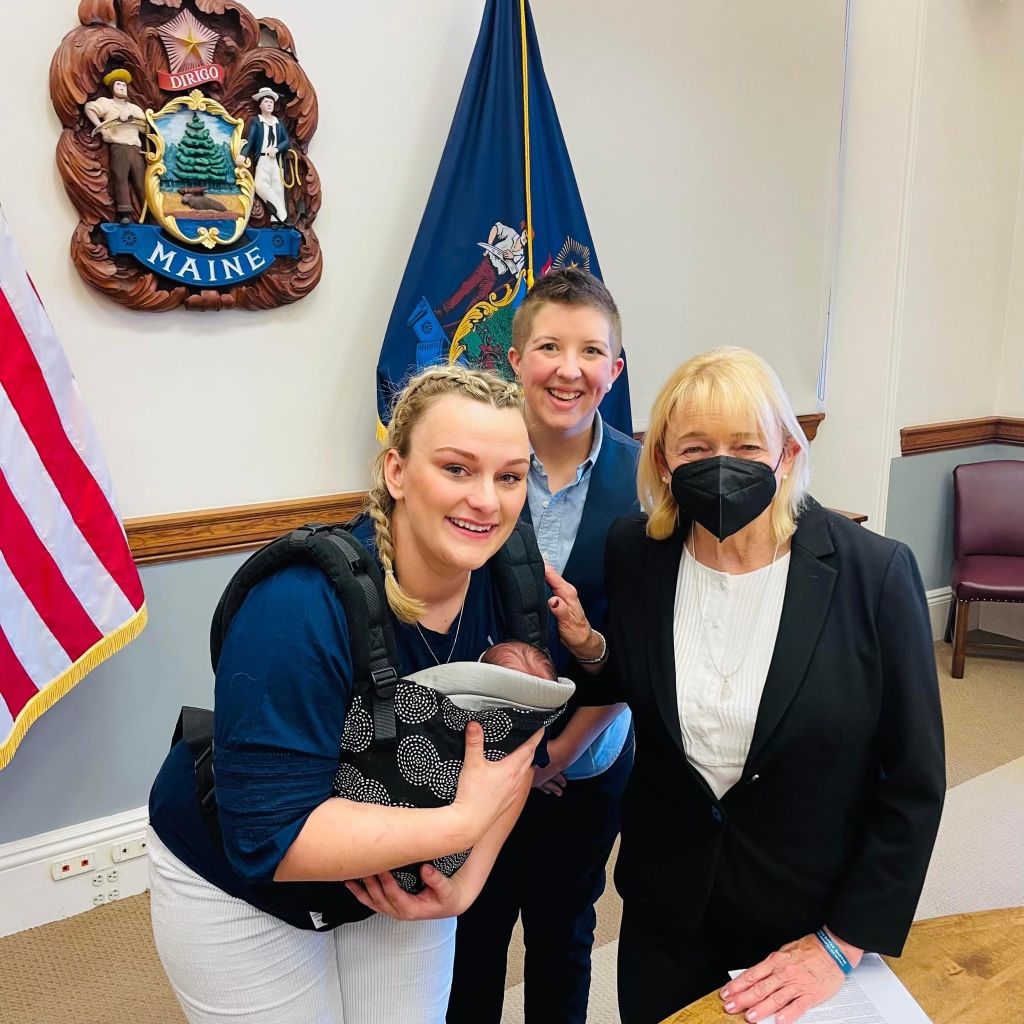
Maine Governor Janet Mills and advocates at the signing of LD. 1539 on May 2, 2022
Maine Governor Janet Mills and advocates at the signing of LD. 1539 on May 2, 2022
Conversations about this are also underway in other cities and states across the nation, including in Massachusetts. Hopefully, this will be a trend that continues, with New England leading the way!
Advocacy is a Team Sport!
If you want to join in or have any questions, reach out anytime to Kate at kwleblanc@resolvenewengland.org.



